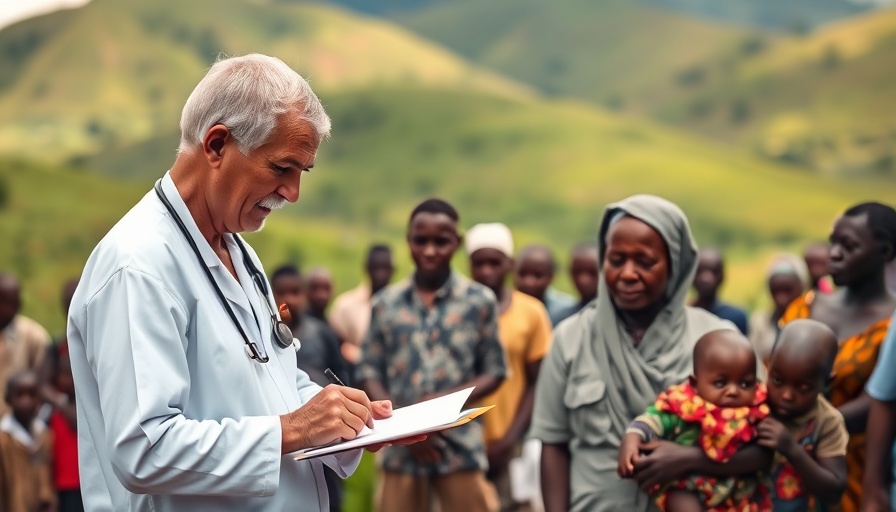
Understanding the Crisis of Neglected Tropical Diseases
Neglected tropical diseases (NTDs) have long plagued communities in extreme poverty, affecting over a billion people worldwide. Often overlooked due to their complex names and the populations they impact, diseases like river blindness, schistosomiasis, and trachoma are not just health issues but profound social challenges. For decades, the U.S. Agency for International Development (USAID) has been a crucial ally in combating these diseases, with effective partnerships that enabled successful distributions of lifesaving medications. Unfortunately, recent U.S. foreign aid cuts threaten to dismantle this progress, putting millions at risk.
What's Happening with U.S. Aid to NTDs?
In January 2025, the Trump administration froze a significant fund of $114.5 million earmarked for the NTD Program. This freeze could jeopardize nearly a billion dollars' worth of donated medicines from pharmaceutical companies. Without USAID's support to manage the distribution logistics, these vital medications may not reach those in need, raising grave concerns among health advocates.
Pharmaceutical Partnerships and Their Potential Fallout
Pharmaceutical companies have historically been supportive in fighting NTDs by donating treatments under the condition that USAID ensures proper distribution. The danger posed by U.S. aid cuts is twofold: not only might effective medicines expire in warehouses, but financial backing is also crucial to transport these drugs to remote communities. Darin Evans, a former USAID contractor, emphasizes, “The big question now is how to get the drug that is already sitting in warehouses out into the field — to the communities that need it.”
Historical Impact of NTD Interventions
Over the years, the USAID NTD Program has delivered over 3.3 billion treatments to more than 1.7 billion individuals across various regions. Countries like Colombia, Ghana, and Sudan have remarkably reduced or eliminated the burden of certain NTDs with sustained financial investment and innovative community health strategies. The triumphs of these programs reflect the potential achievable results that collaboration can yield, and the looming funding cuts threaten to undermine these monumental achievements.
A Call for Community Engagement and Support
So, how can communities maintain momentum in fighting NTDs amid these concerning changes? Internationally, the call for greater community involvement is growing stronger. Local health organizations, support groups, and individuals can advocate for the restoration of funding, raising awareness about the importance of NTDs, and collaborating with global health entities.
Seeking Solutions: Future Trends in NTD Treatment
The situation surrounding NTDs serves as both a wake-up call and an opportunity for innovative approaches. Emerging trends in holistic wellness, community health initiatives, and integrative health practices may find their way into addressing NTDs more actively. As the world becomes more interconnected, fostering partnerships and identifying innovative solutions in health technology can promote continued efforts against these neglected diseases.
Emphasizing Personal and Community Wellness
This crisis highlights a unique intersection of health, wellness, and empathy. By understanding the importance of maintaining healthy communities, individuals can act as ambassadors for change. Local events promoting public health, fundraisers, or simply engaging in discussions can empower communities to rally together for a healthier future.
Conclusion: The Responsibility We Share
A shared commitment to combating neglected tropical diseases is crucial not only for the people directly affected but for global health as a whole. By advocating for essential programs that ensure drug delivery and supporting local communities in their fight against NTDs, we can help to uphold the progress made over the past decades.
As you navigate your own health journey, remember that every action counts. Whether it’s advocating for better health practices or staying updated on the latest developments in wellness research, your engagement can make a significant impact. Let's work together to protect those in need!
 Add Row
Add Row  Add
Add 




 Add Row
Add Row  Add
Add 

Write A Comment